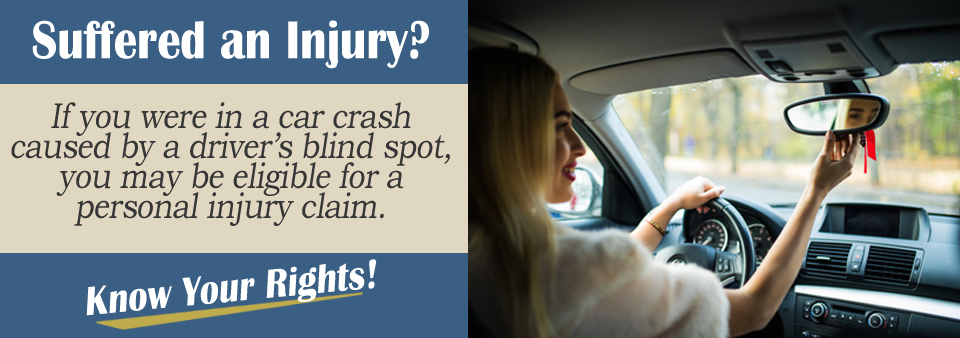If you, or one of your passengers, were injured in a blind spot car accident you may be able to get all your medical expenses after the car accident paid by the insurer of the driver found to be at fault. You may still have to pay your initial car accident medical bills from your own insurance. However, if you have sufficient evidence to prove the other driver was at fault you may be able to receive compensation for your injuries which should include personal injury medical expenses.
Who Pays for Medical Treatment?
When you are injured in a blind spot car accident you may either pay for your medical treatment upfront or request that your insurer pays, but it may also be possible to receive compensation from the at-fault driver.
There are many different types of injuries that are possible after a blind spot car accident depending on which part of the car was hit. If the driver was merging into traffic but failed to see a vehicle in their rear in the merging lane the most likely scenario is a rear-ender throwing the driver rapidly forwards which could lead to whiplash or head injuries such as a traumatic brain injury (TBI) if the victim struck his or her head on the windshield. The average cost for treating TBI in a hospital is $8,000. If the victim needs to attend a residential rehab center the charge for a TBI patient is up to $2,500 per day. If a death results from the TBI the medical bills could reach almost half a million dollars.
States That Have No Fault Insurance
In most no-fault accident states, drivers must take out personal injury protection (PIP) coverage as part of their car insurance policy. There are 12 no-fault states, which includes the following:
- Florida
- Michigan
- Massachusetts
- New Jersey
- New York
- Pennsylvania
- Hawaii
- Kentucky
- Massachusetts
- Minnesota
- North Dakota
- Utah
This type of insurance may be claimed whether you were at fault or not. The value of the medical treatment you might be eligible to claim will depend on the value of the cover you have taken out in insurance. Most no-fault states require a minimum amount of PIP insurance that drivers are required to have.
PIP insurance also covers compensation for lost wages, but it will not pay out for damage done to your car or any property that has occurred in the accident. In a blind spot accident in a no-fault state, the PIP will probably be sufficient to cover your likely medical costs, but you might have to file a personal injury claim against the at-fault driver if you wish to recover damage to your property or if the total cost of medical treatment and lost wages exceeds the PIP cover you have available.

States That Do Not Have No Fault Insurance
In a fault state your first round of medical expenses may only be claimed if you have paid for optional medical insurance policy, such as PIP or MedPay. The latter differs from PIP because it doesn’t cost as much and can be tailored to match your potential requirements, but it will not cover compensation for any lost wages.
If you were not at fault and you have sufficient evidence to prove that another driver caused the accident, you may be eligible to file a personal injury claim for compensation. If your claim is successful, the insurer of the at-fault driver insurer may be required to pay back medical cost payments you have already acquired from your own insurer.
Get a Free Case Evaluation Today